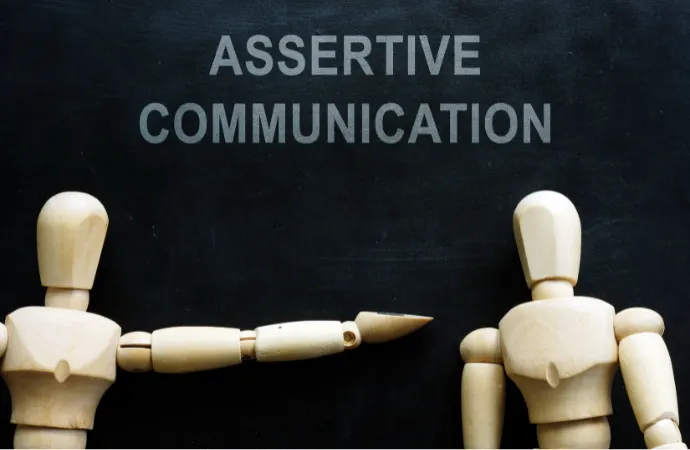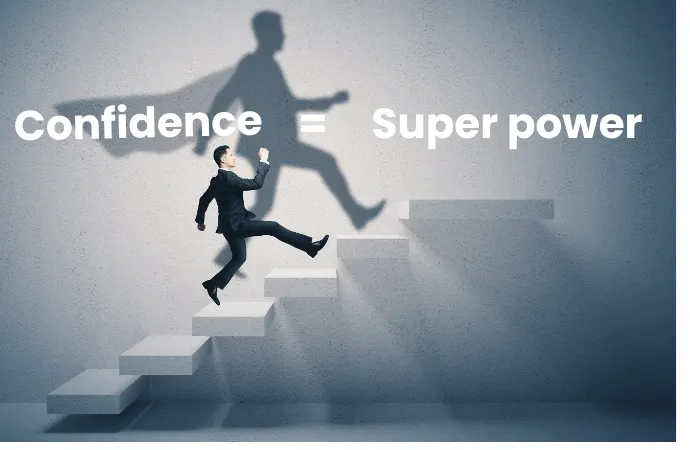5 Powerful Reasons to Master Assertive Communication
By: Pratishtha Bhalla,
Founder: Coachista,
Leadership and Wellness Coach
Communication is the invisible force that shapes our relationships, careers, and personal well-being. Whether you're speaking or silent, you're constantly sending messages—intentional or not. The way you communicate can either propel you forward or hold you back, regardless of your age, gender, or background.
Think about the last time you felt misunderstood. Have you ever said, "You just don’t get what I’m trying to say!"? How often do people misinterpret your words? If you want to gauge your communication skills, pay attention to the responses you receive. Are they helping you or working against you?
One critical skill that can transform your interactions is assertive communication. In his TED Talk, "How to Speak Up for Yourself," psychologist Adam Galinsky explains how many people struggle with a double bind—they’re unsure whether to voice their thoughts and, if they do, they fear coming across as too aggressive or too passive. This hesitation often leads to frustration and missed opportunities.
Assertive communication is the sweet spot between aggression and passivity. It allows you to express your thoughts clearly, stand up for your rights, and respect others’ perspectives—all while maintaining confidence and composure. Unlike passive communicators (who suppress their feelings) or aggressive communicators (who bulldoze over others), assertive individuals create win-win outcomes.
In today’s fast-paced, digitally driven world, mastering assertive communication is more crucial than ever. Here are five compelling reasons why you should develop this skill:
1. Take Control of Your Emotions and Conversations

Ever left a conversation feeling steamrolled or resentful? Passive communicators often let others dictate discussions, leading to frustration and low self-esteem. On the other hand, aggressive communicators dominate conversations, creating hostility.
Assertive communicators respond instead of react. They stay composed, articulate their needs clearly, and steer discussions effectively. By managing your emotions, you prevent misunderstandings and ensure your voice is heard—without stepping on others’ toes.
Post Covid-19, where remote work and digital communication dominate, assertiveness helps you:
- Set boundaries in virtual meetings.
- Avoid miscommunication in emails and messages.
- Stay confident during negotiations.
When you master assertive communication, you control the conversation instead of letting it control you.
2. Protect Yourself from Manipulators

Manipulators thrive on emotional reactions. They push buttons, twist words, and exploit passive or aggressive tendencies to get their way. If you’re overly passive, they’ll walk over you. If you’re aggressive, they’ll provoke you into saying things you’ll regret.
Assertive communicators don’t fall into these traps. By maintaining a calm tone, firm body language, and clear statements, you deny manipulators the leverage they seek. In a world where gaslighting and toxic workplace dynamics are rampant, assertiveness is your shield.
How assertiveness helps:
- Spotting emotional manipulation in personal and professional relationships.
- Handling passive-aggressive comments with grace.
- Avoiding guilt-tripping tactics from colleagues or family members.
When you communicate assertively, manipulators lose their power over you.
3. Say "No" Without Guilt (And Free Up Your Time)

Many people struggle with saying "no" because they fear rejection or conflict. But every "yes" to something you don’t want is a "no" to your own priorities.
Assertive individuals set boundaries confidently. They decline requests politely but firmly, ensuring they don’t overcommit. In an era of burnout culture and endless demands, this skill is priceless.
Why saying "no" matters:
- Prevents burnout from excessive workloads.
- Improves mental health by reducing unnecessary stress.
- Helps prioritize what truly matters—family, self-care, and passions.
As Warren Buffett famously said, "The difference between successful people and very successful people is that very successful people say no to almost everything."
4. Build Stronger, More Authentic Relationships

Passive communicators attract users; aggressive communicators push people away. Assertive communicators, however, cultivate genuine connections.
When you’re assertive:
- Manipulators avoid you (because they can’t exploit you).
- People respect your honesty (even if they don’t always agree).
- You attract like-minded individuals who value mutual respect.
In today’s world, where superficial connections (think: social media "friends") are common, assertiveness helps you build deeper, more meaningful relationships.
5. Earn Respect—Without Demanding It

Respect isn’t commanded; it’s earned. And the first step to earning it? Respecting yourself.
Assertive communicators:
- Value their own opinions (without dismissing others).
- Stand firm on principles (without being rigid).
- Project confidence (without arrogance).
In workplaces, friendships, and even online interactions, assertiveness establishes your credibility. People remember how you made them feel—and assertive communicators leave a lasting impression of strength and fairness.
Final Thoughts: Why Assertiveness Matters More Than Ever Today
We live in a world of constant communication—texts, emails, video calls, social media. Misunderstandings are rampant, and passive or aggressive responses only fuel conflicts.
Assertive communication is the antidote. It helps you:
✅ Express yourself clearly (without fear).
✅ Handle conflicts constructively (without drama).
✅ Build stronger relationships (based on mutual respect).
If you’ve ever felt unheard, manipulated, or overwhelmed by conversations, it’s time to embrace assertiveness. Stay tuned for my next article, where I’ll share actionable tips to develop this skill.
What’s one area where you struggle with communication? Let me know in the comments!








